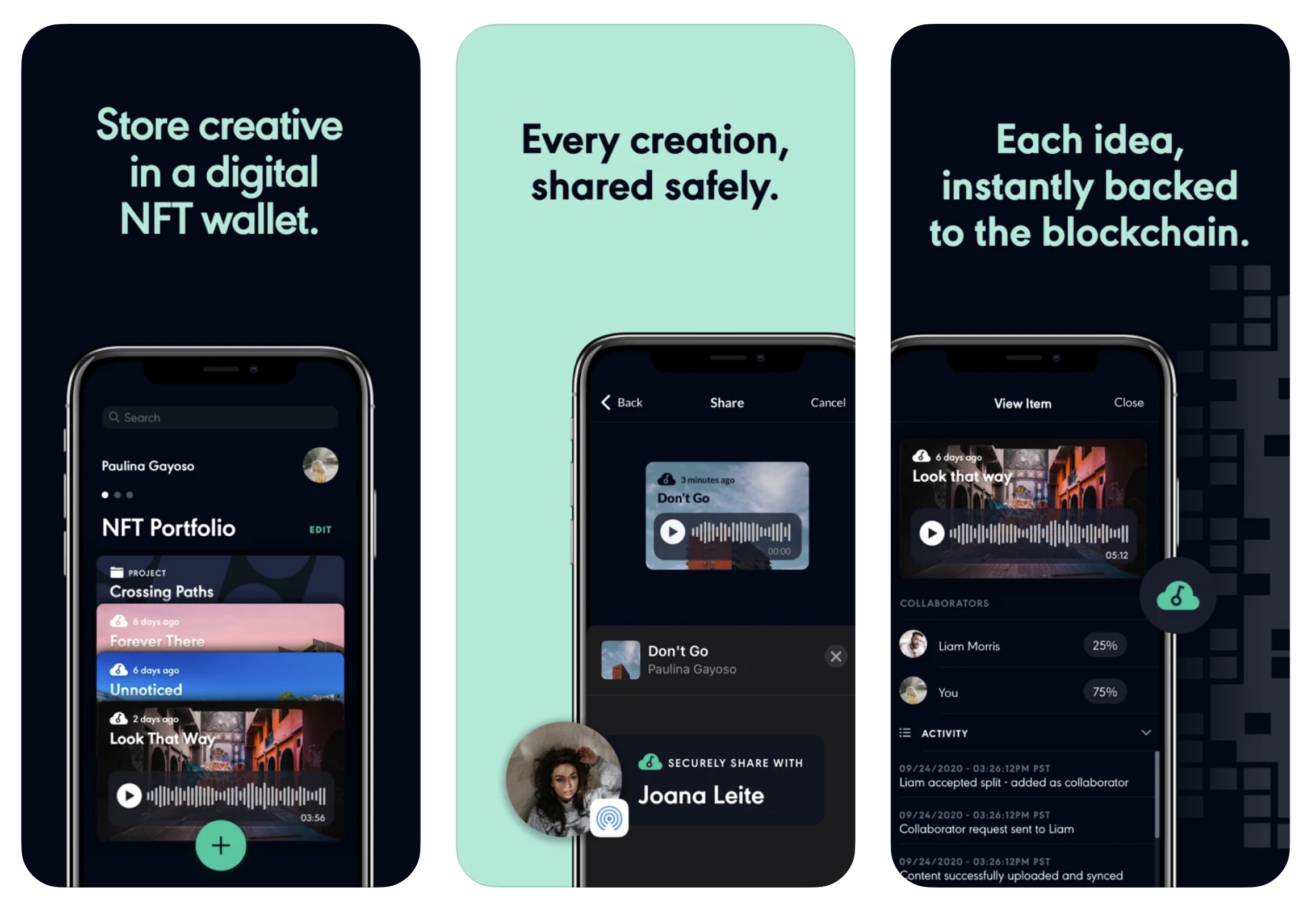[ad_1]
After a years-long crypto winter, it been the spring of NFTs, but as digital art prices sober up after an explosion in sales, blockchain founders are looking to find more stable opportunities in the space that can grow over time even as speculative interest in NFTs shifts.
One particular interest has been using NFTs to reshape the creator economy in a manner that actually benefits artists more than the platforms that host their work. A new flavor of this pursuit comes from the recently launched S!NG (pronounced sing), which has built a platform around simply letting users upload files to their servers and time-stamp those uploads on the Ethereum blockchain. It’s a dead-simple mechanic with an ambitious framing, ensuring that artists maintain credit for their work as they create it.
The team behind the app sees a future where artists use the platform as an autosave for their intellectual property during the creative process, enabling them to scribble down notes or upload a quick demo and save those moments on the blockchain, a step that they hope can eliminate or expedite rights disputes for creators that can point to a clearly time-stamped breadcrumbs trail. By virtue of the app’s name, it’s clear that they are aiming to attract songwriters and musicians in particular, but the company’s onboarding also showcases wider ambition in the creator world, enabling users to designate if they are a photographer, writer or programmer as well.
“You have the best of both worlds with very public witnesses to a very private event,” says CEO Geoff Osler. “Your content is never out there, but you can have this massive attestation to the fact that it exists at a certain point in time.”
The iOS app itself is pretty straightforward. After uploading a piece of media, be it a photo, video, audio or text file, users can tack on additional files, make note of additional collaborators or add notes before submitting it and christening the work on the blockchain. The file itself is private with a hash hosted on the blockchain while the encrypted files are stored on S!NG’s AWS servers, so creators don’t need to worry about their early ideas being served up to a public audience. A concern here for early adopters is what happens if the blockchain startup eventually goes under and those servers go with it, but that’s an issue facing plenty of startups that are backing the underlying media files of NFTs on centralized servers.

Image via S!NG
Rights disputes might be something more top-of-mind to those who have spent substantial time in their specific creative industry, compared to budding artists who are likely wholly concerned with getting their work seen in the first place. While public links allow a work’s origins to be tracked down once it’s complete and ready for public consumption, S!NG’s aim is to develop those moments earlier in the development of a work and aid artists who might be involved with more collaborative creative processes where ownership of ideas can appear more obfuscated from a legal standpoint.
“If I get something stolen from me, I’ve got a team that’s going to defend me and they’re probably going to win or settle any claims, but if you’re a 16-year-old kid, you don’t have that ability so that’s what we want to provide, but more as a deterrent,” musician and advisor Raine Maida tells TechCrunch. “I think when you see the S!NG watermark or you see that it’s saved and shared through the wallet… you don’t have to understand blockchain but you’ll know S!NG is that company that protects you.”
For the time being, non-fungible token-based legal defenses are probably a bit unusual, but the team’s founders believe that blockchain-based ownership proofs will be entering case law organically just as technology like DocuSign has been accepted.
If the company can successfully push creators to weave the S!NG platform into their toolkits, the startup will have plenty of opportunities on which to capitalize in the incredibly young blockchain creator space. While many artists may see the NFT space as a speculative cash grab, the company’s founders seem publicly focused on sidestepping hype for the time being.
“Frankly I don’t give a shit about all of this crazy NFT stuff with things selling for a bazillion dollars,” Osler says. “I’m interested in the small artist who has 1,000 fans who will eagerly pay up $15 to keep that person in business.”
[ad_2]
Source link






